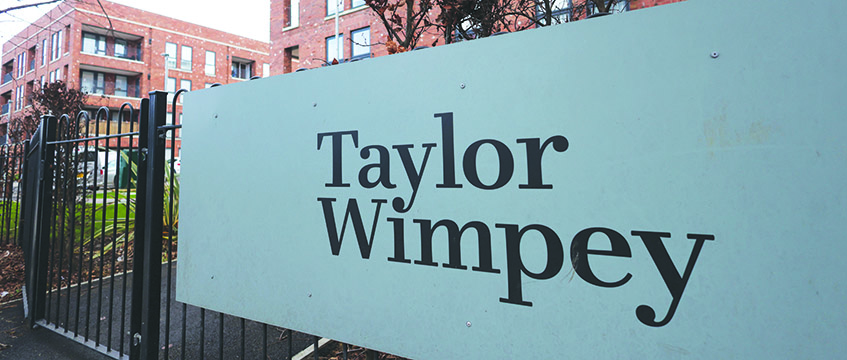In times past the New Year provided a lull for sleepily mulling over good resolutions as the property world awoke from the self-congratulatory torpor induced by business and domestic Christmas festivities. Already, however, 1986 promises to be a dramatic — even traumatic — 12 months for agency. During the last days of the old year the Prudential, Britain’s biggest insurance company, announced the formation of Prudential Property Services (PPS) to take over, as a first step, the running of Ekins Dilley & Handley, the 12-branch Huntingdon-based practice acquired by the Pru earlier in 1985.
PPS, from this professional base, will offer a broad range of conventional services — agency, surveys, valuations, insurance and removals — plus the innovation of “chain-breaking”, the guaranteed buying-in of a vendor’s property should he wish to sell urgently and so unlock the usual series of linked transactions. Of course the traditionalists will point to the snag: a sale at an under-value to a well-heeled middleman who can wait and eventually sell at a profit. Critics, however, should hold their fire. This may be a feature that the public will welcome. If so, why have the conventional agencies not taken vigorous steps to promote the concept? Perhaps because there could be capital gains tax, management expenses and conveyancing fees involved, so that the apparent margins are by no means as attractive as they may at first appear.
Although the Pru’s initial agency venture is described as “experimental”, success could lead to a national network through further acquisitions, perhaps among those who were not asked to join the Black Horse stable or who turned down earlier approaches. Agency offices might then develop into retail outlets for a broad range of financial services, including the Pru Bank, a deposit-taking facility thought to be only just over the horizon.
In times past the New Year provided a lull for sleepily mulling over good resolutions as the property world awoke from the self-congratulatory torpor induced by business and domestic Christmas festivities. Already, however, 1986 promises to be a dramatic — even traumatic — 12 months for agency. During the last days of the old year the Prudential, Britain’s biggest insurance company, announced the formation of Prudential Property Services (PPS) to take over, as a first step, the running of Ekins Dilley & Handley, the 12-branch Huntingdon-based practice acquired by the Pru earlier in 1985.
PPS, from this professional base, will offer a broad range of conventional services — agency, surveys, valuations, insurance and removals — plus the innovation of “chain-breaking”, the guaranteed buying-in of a vendor’s property should he wish to sell urgently and so unlock the usual series of linked transactions. Of course the traditionalists will point to the snag: a sale at an under-value to a well-heeled middleman who can wait and eventually sell at a profit. Critics, however, should hold their fire. This may be a feature that the public will welcome. If so, why have the conventional agencies not taken vigorous steps to promote the concept? Perhaps because there could be capital gains tax, management expenses and conveyancing fees involved, so that the apparent margins are by no means as attractive as they may at first appear.
Although the Pru’s initial agency venture is described as “experimental”, success could lead to a national network through further acquisitions, perhaps among those who were not asked to join the Black Horse stable or who turned down earlier approaches. Agency offices might then develop into retail outlets for a broad range of financial services, including the Pru Bank, a deposit-taking facility thought to be only just over the horizon.
But if estate agency feels itself threatened by pressures from external interests, it should equally be aware of the muscle power that even local property interests can deploy in other fields. One result is next month’s projected closure of England’s oldest provincial daily newspaper, the Sheffield Morning Telegraph, following the failure of local practices to renew annual advertising contracts. Similarly, it may well be that in many parts of the country the local paper, which with its hotch-potch of parochial and personal items performs so valuable a service, depends crucially on the revenue derived from house agency. Can free sheets really be the answer?
Competitive changes in marketing, however, are only one aspect of the broad tide of competition that will increasingly disturb the cosy traditional patterns. And the magnet for interest from so many quarters is, of course, the massive lodestone of available annual fee income which stems from house selling. In total this may well now be over £500m, and further rises seem inevitable as house prices continue to increase and the incentives to home-ownership remain so compelling. The new forces entering house agency have certainly appreciated these trends: what they may have under-estimated — but what they will learn by experience — are the financial facts of agency life. They may not have realised, for example, the sheer weight of abortive work they will have to undertake on behalf of clients who change their minds or who were “just testing the market”. They may not have realised that, with a very substantial proportion of their overheads fixed, a fractional shift in commission rates resulting from increased local competition can put their net profits under the most severe pressure. What is the answer for traditional agency? To rely on the professional side of survey and valuation to underpin income? Perhaps, but an across-the-board service demands trained and expensive staff and an expansion of the firm with yet more costs to meet. Or should there be a move towards the ubiquitous “financial services”, and the provision of insurance, mortgages and life assurance? But where the smaller firms may be at the biggest disadvantage this year is in the business management and marketing of their services, a field in which the big battalions, spreading their overheads, can have the edge.










